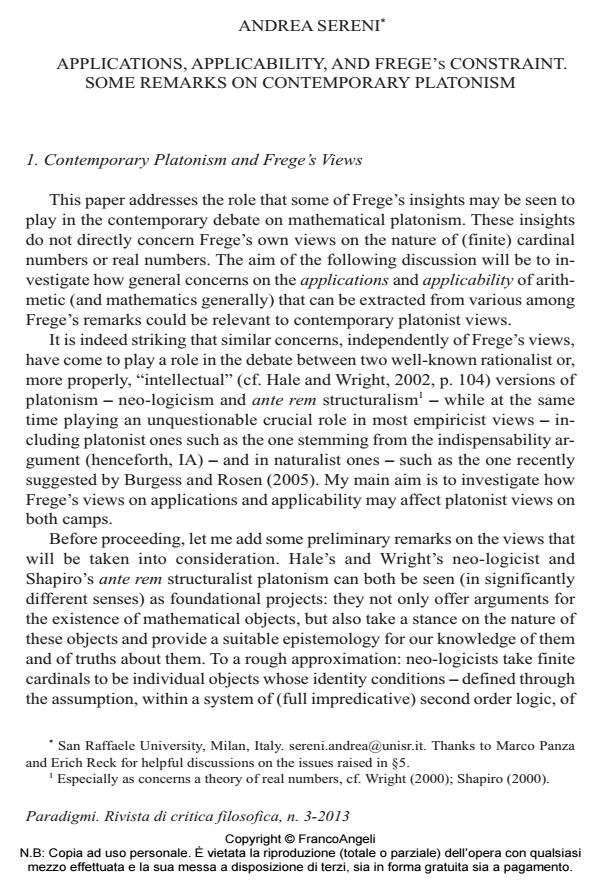Applications, applicability, and Frege’ s Constraint. Some remarks on Contemporary Platonism
Titolo Rivista PARADIGMI
Autori/Curatori Andrea Sereni
Anno di pubblicazione 2014 Fascicolo 2013/3
Lingua Inglese Numero pagine 20 P. 91-110 Dimensione file 114 KB
DOI 10.3280/PARA2013-003007
Il DOI è il codice a barre della proprietà intellettuale: per saperne di più
clicca qui
Qui sotto puoi vedere in anteprima la prima pagina di questo articolo.
Se questo articolo ti interessa, lo puoi acquistare (e scaricare in formato pdf) seguendo le facili indicazioni per acquistare il download credit. Acquista Download Credits per scaricare questo Articolo in formato PDF

FrancoAngeli è membro della Publishers International Linking Association, Inc (PILA), associazione indipendente e non profit per facilitare (attraverso i servizi tecnologici implementati da CrossRef.org) l’accesso degli studiosi ai contenuti digitali nelle pubblicazioni professionali e scientifiche.
Le idee di Frege sulle applicazioni e l’applicabilità dell’aritmetica, e della matematica in generale, suggeriscono un certo numero di requisiti che un resoconto filosofico dell’aritmetica (della matematica) dovrebbe soddisfare. I punti rilevanti di tali requisiti sono enucleati e precisati e viene discusso come essi possano essere valutati dai sostenitori di posizioni platoniste contemporanee, sia di quelle sul versante latamente razionalista: il neo-logicismo di Hale e Wright e lo strutturalismo ante rem di Shapiro, sia di quelle sul lato empirista e naturalista: il platonismo indispensabilista e il platonismo "di default" di Burgess e Rosen. L’autore conclude offrendo alcune formulazioni deboli del Frege’s Constraint che, appropriatamente formulato, mostra di poter essere soddisfatto anche da posizioni non logiciste e non platoniste.
Parole chiave:Applicabilità della Matematica, Requisito di Applicabilità di Frege, Neo-logicismo, Strutturalismo, Platonismo empirista, Platonismo naturalista.
Andrea Sereni, Applications, applicability, and Frege’ s Constraint. Some remarks on Contemporary Platonism in "PARADIGMI" 3/2013, pp 91-110, DOI: 10.3280/PARA2013-003007